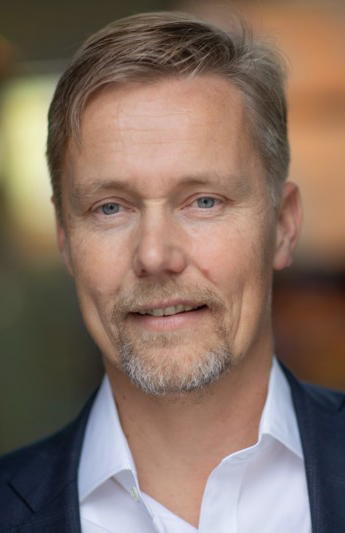KTH initiative becomes a part of a prestigious consortium

KTH and the Digital Futures venture have joined the C3.ai DTI consortium, it was announced today. Karl Henrik Johansson, professor at KTH and director of Digital Futures, explains what this means for KTH.
Johansson points out that KTH is the only non-American university involved in the collaboration. “It has to do with the fact that KTH's and Digital Futures' knowledge of digital transformation is at a high international level,” he says.
The C3.ai DTI consortium is dedicated to accelerating the benefits of artificial intelligence for business, government, and society. It includes Microsoft Corp. and a number of leading American universities (see sidebar).
“Becoming a member of this consortium, which was started by the leading American universities in digital transformation, provides a fantastic opportunity to do research together.”

What are you going to do?
“Digital transformation when it comes to significant societal challenges such as energy and climate change goals, as well as health. To help us live a rich and healthy life. The pandemic is an excellent example of the latter. The consortium was formed in March 2020, and shortly afterward a research program was launched, AI for COVID-19. A strategy could be developed quickly how one of the parties, the University of Illinois at Urbana-Champaign, could reopen the university despite the pandemic – this through sampling, digital tools and other ways to reduce infection. It was an effective working method not unlike the one used successfully in Asian countries like South Korea.”
Are there other examples?
“Engineering community and urban planning, for example. We are talking about urban science to understand how society should be built and developed with science. Today's cities are built around flows of people, how they move, that there should be certain distances to local transport, schools and parks. But there are other flows as well, such as energy. Here, neighbourhoods, districts and electricity networks can be built so that everything complements each other, for example, energy consumption. At the same time, new technology can create vulnerabilities. If not handled correctly, they become something we must deal with. An example was the modern electricity meters that came a few years ago that revealed what the residents did when they were at home. It is important to analyze who should have access to data.”
What will be the role of Digital Futures in the consortium?
“To contribute to knowledge. That we became members is about the Stockholm region being prominent in the field of digital transformation. We have a good collaboration with the region, the city and the companies. Here are global companies, like Ericsson for 5G and Skanska in terms of urban planning. We work closely together, and we have something to bring.”
Text: Peter Ardell/Översättning: Johanna Gavefalk
Related story:
KTH is marshalling its forces within digitalisation

